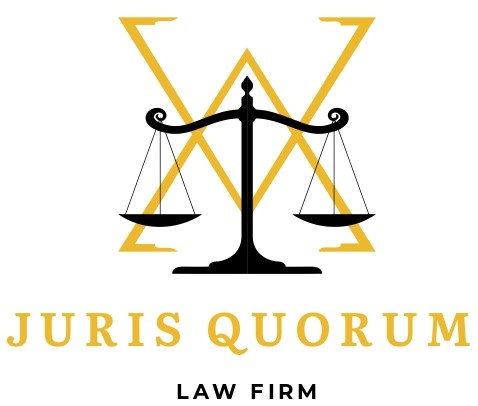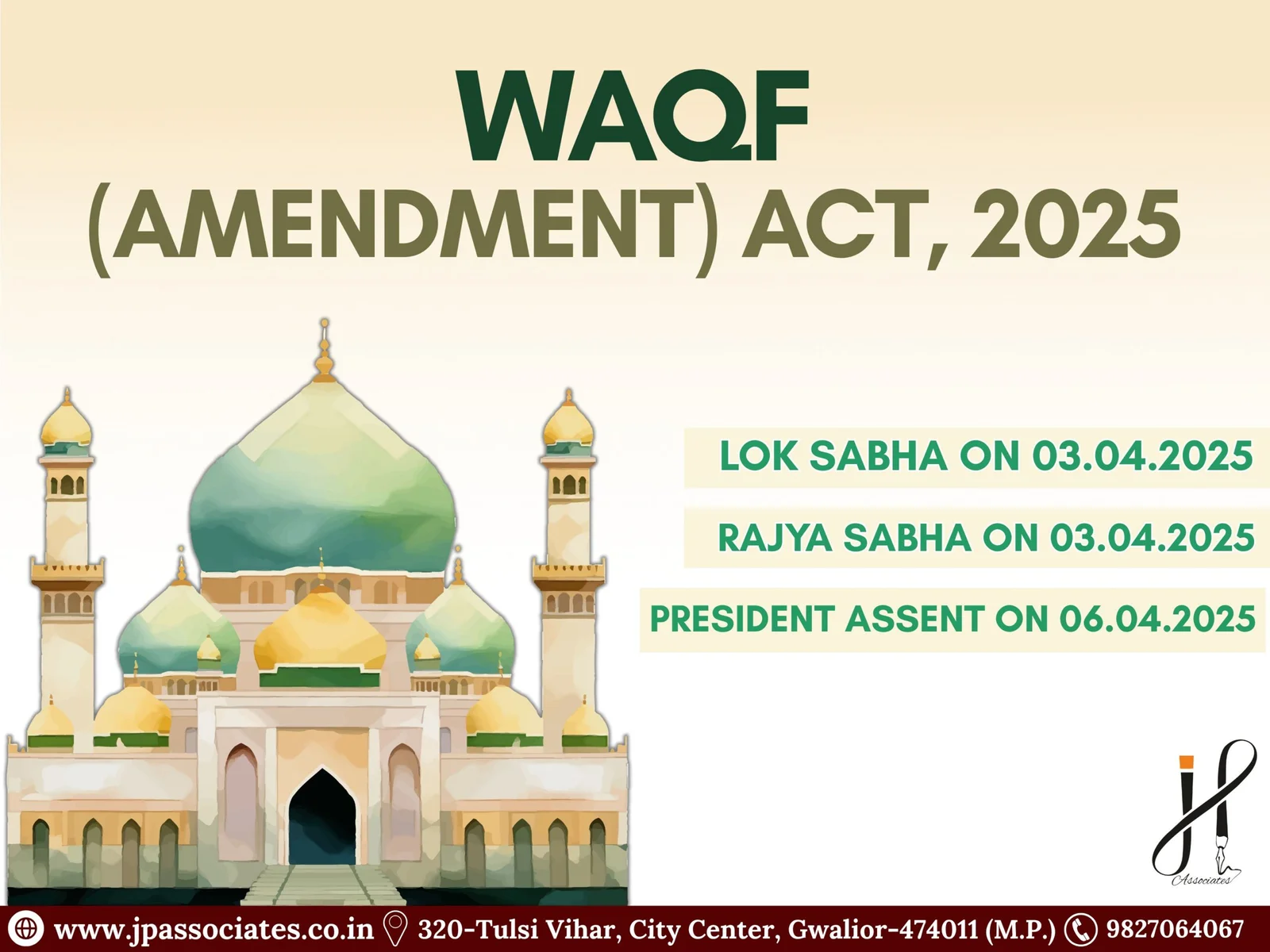What is Waqf?
Waqf (or Wakf) is a permanent dedication of movable or immovable property by a Muslim for religious, pious, or charitable purposes as recognized by Islamic law. Once a property is declared as Waqf, it becomes irrevocable and cannot be sold, transferred, or inherited.
📜 Legal Framework of Waqf in India
India has one of the largest Waqf systems in the world, governed primarily by:
-
The Waqf Act, 1995 (amended in 2013)
-
Waqf Rules issued by State Boards
-
Jurisprudence under personal law, civil procedure, and property law
Under this Act:
-
Waqf properties are administered by State Waqf Boards
-
A Mutawalli is appointed to manage the property for its intended religious or charitable use
-
Unauthorized occupation or misuse is prohibited and punishable
⚖️ Common Legal Issues in Waqf Matters
At Juris Quorum, we routinely handle legal matters involving:
1. Illegal Encroachment of Waqf Property
-
Unauthorized construction, leasing or sale of Waqf land
-
Litigating against encroachers under Section 54 of the Waqf Act
2. Disputes Over Mutawalli Rights
-
Challenging or defending appointments
-
Removal of negligent Mutawallis
3. Title Conflicts Between Private and Waqf Claims
-
Resolution of boundary and ownership disputes
-
Intersection of government notifications and Waqf Board records
4. Restoration and Protection of Waqf Assets
-
Filing recovery petitions
-
Representing clients before Waqf Tribunals and High Courts
🧠 Key Supreme Court Judgments on Waqf
-
Board of Muslim Wakfs v. Radha Kishan (1979) – Defined the scope of Waqf Board powers over encroachments.
-
Punjab Waqf Board v. Sham Singh Harika (2009) – Clarified the status of lease and Waqf Tribunal jurisdiction.
-
Union of India v. Rajasthan Waqf Board (2013) – Reiterated the binding effect of Waqf Gazette notifications.
🏛️ Role of Waqf Tribunals
The Waqf Tribunal is a quasi-judicial body set up under the Act to decide all matters relating to:
-
Property disputes
-
Mutawalli appointment/removal
-
Encroachment and eviction
-
Lease approvals and nullifications
Decisions of the Tribunal are binding and cannot be challenged in civil courts — only High Courts under writ jurisdiction (Article 226) can entertain appeals.
🔒 Why Waqf Law Matters Today
In cities like Delhi, Noida, Lucknow, and Bhopal, Waqf properties are often at the heart of commercial and urban development disputes. It is crucial for individuals, developers, and communities to:
-
Verify Waqf status before transactions
-
Understand the jurisdictional scope of Waqf Boards and Tribunals
-
Seek legal consultation in advance to avoid litigation
👩⚖️ How Juris Quorum Can Help
Our team of property and constitutional law experts provides end-to-end legal support in:
-
Property due diligence involving Waqf claims
-
Writ petitions challenging Waqf Board actions
-
Legal defense in encroachment or eviction proceedings
-
Representation before Waqf Tribunals, High Courts & Supreme Court.
-
Q: Can Waqf property be sold?
-
A: No. Waqf property is permanently dedicated and cannot be sold, transferred, or gifted.
Q: Who governs Waqf properties in India?
A: The State Waqf Boards, constituted under the Waqf Act, 1995.
📩 Need expert guidance on Waqf Law?
Reach out to us for a confidential legal consultation. Pawan Prakash Pathak
📞 +91-8600545332
📧 jqdelhi@gmail.com
🌐 www.jurisquorum.in

